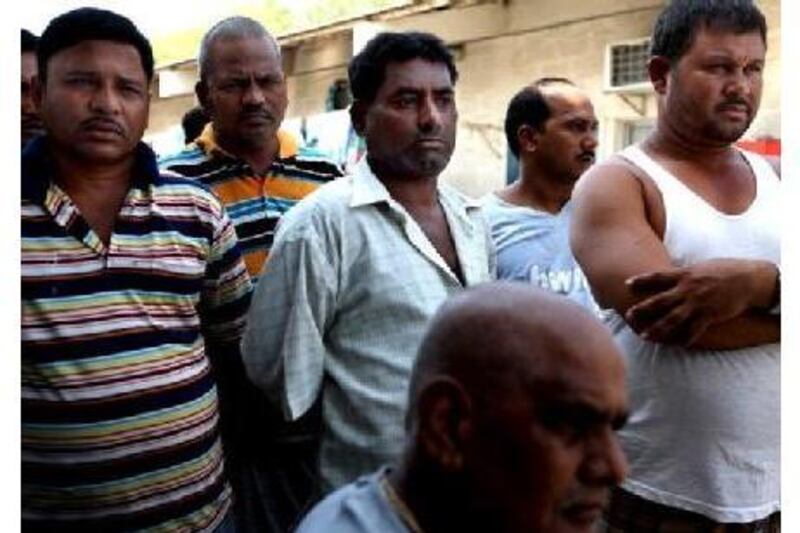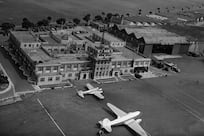ABU DHABI // Amid confusion and miscommunication, workers abandoned by a defunct construction company bought their own air tickets back to their home countries - a day after the Red Crescent Authority (RCA) said it would fund their repatriation.
The 28 workers had been relying on help from a public relations representative for their former eployer, Al Otaiba and Garg Contracting. The representative, Nabeel Abujabarah, had told the group he would be able to arrange for tickets for them, but yesterday he said the workers would have to pay their own way.
Although Jabir al Rawisi, a spokesman for the RCA, said the organisation had offered to pay for the tickets on Tuesday, Mr Abujabarah said he had not been given a final word about the offer. "They said they will call me," he said. "They said they had no objections."
Mr Abujabarah said he had not discussed the development with the workers. "I will explain to them but not now," he said yesterday, before learning the workers had bought their own tickets.
"I will convince them to buy their own tickets because this means that they will have to wait 20 or 30 more days if they are to expect to get tickets, after all the paperwork has been cleared."
Al Otaiba and Garg, a contracting company, abandoned the labourers in their camps more than a year and half ago, and declared bankruptcy in 2009. The workers first waited for the emirate's Sharia court to grant them their end-of-service benefit packages, which were obtained only after the assets of the company were liquidated.
The company once employed more than 300 workers. In 2009, through the courts, the company paid out more than Dh100,000 to a first group of employees, mostly engineers and executives. The second group, comprising labourers, was paid last.
In February, 83 workers remained. Mr Abujabarah said then that "before March 15, everyone will be home". But the workers did not receive their end-of-service benefits until April. Yamuna Singh, 54, a worker from the state of Uttar Pradesh in India, said he borrowed Dh400 from a friend and added Dh200 of his own money to buy a one-way ticket to Delhi for tonight. From there, he will travel to his village. Mr Singh received Dh13,000 from the company, but he said that since 2008, when work dried up and monthly salaries became sporadic, he had incurred more than Dh10,000 in debt to support his family and buy food and other essentials.
"Whatever we got from the courts, I have used mostly to pay off debts," he said. "I don't want anyone to tell people in my village that I ran away with their money and put them in trouble." The 28 remaining workers say they paid Dh500 to Mr Abujabarah, at his request, to arrange for their paperwork, including retina scans. Two government ministries and a judge have stated that the men were not required to pay any fees or fines.
Yesterday, Mr Abujabarah took the men to get their eye scans, which will allow them to permanently leave the country. On the receipts, the cost was listed as Dh125. "That piece of paper said what it did," said Rajesh Kumar Yadav, another worker. "Nabeel paid it on behalf of us, but he took from us almost double of what was charged for that test."
The workers should all be out of the country by Sunday. Most will leave tomorrow, and three will depart on Saturday.
"By Saturday, the camp will be empty," Mr Yadav said.
[ sbhattacharya@thenational.ae ]
* Additional reporting by Haneen Dajani






